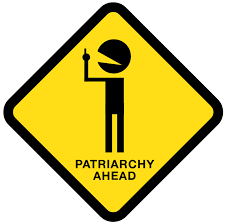By Priya Ahluwalia
Priya is a 22-year-old clinical psychology student at Tata Institute of Social Sciences – Mumbai. She is passionate about mental health, photography, and writing. She is currently conducting a research on the individual experience of Khatna and its effects. Read her other articles in this series – Khatna Research in Mumbai.
Patriarchy is that societal system where the head of the family is usually male and the family lineage is determined through the male line. However, this system is much more insidious than that: it invades and corrodes the minds of those who live within it to an extent where they no longer can see beyond their patriarchal identities. It is a system which compels women to not only be coerced into a submissive position but rather stay subdued by distorting the reality to convince them that they are inferior.
Thus, I would define patriarchy as a steady corrosion of the feeble minds of young children who are made to believe by society that there exists a hierarchy within the world, in which the man must come first and the woman second. If we are to reflect, we have been indoctrinated into this ideology since our childhood. It is not only a part of our religious scriptures but also has deviously made its way into the stories we tell to our children. Personally, I grew up on stories where women were always the damsel in distress and the prince somehow the elixir to all her problems, whether it was the story of Cinderella or Sita. Growing up, they were my role models, I was supposed to be delicate and compliant, while the men were supposed to be strong and the decision makers, my one-point solution to everything. These stories, these ideas are just the starting point from where patriarchy originates and eventually morphs itself into inexcusable practices such as Khatna – a traditional practice which involves nicking or removal of the prepuce/foreskin of the clitoris.
Like Khatna, there are several other patriarchal practices which attempt to curb a woman’s sexuality, like honor killings, acid attacks, and forced abortions, among others. However, considering that these are drastic measures, I wonder: how did we get to this level? Where in the system did we falter to allow for the inception of these measures? The answer lies in our most basic human tendencies. We are naturally bound to dissociate ourselves from anything extreme.
Our mind evaluates each incident in the environment for its probability to personally affect us. When anything of moderate intensity occurs, such as cars lightly bumping into each other in a traffic jam, our brain evaluates it as having a high likelihood of it occurring in our daily lives and therefore we are mindful of it, in order to successfully avoid it. Whereas, a car accident on the highway is something so extreme that our mind cannot accept that it can occur to us, and therefore pushes it out, making the individual believe that they would remain unaffected by it. This is how practices like Khatna slip through the radar. We think, “It doesn’t happen to us, we don’t do that in our community”. However, as my feminist friend rightly remarked, “We must then observe and understand the microaggressions that happen within our community which condone and make way for these forms of oppressive practices.”
Common examples of these microaggressions are the statements we make to our daughters in passing,
“Girls should not loiter;
Girls should not wear western clothes as it attracts unwanted attention;
Girls should be married early to allow them to have children during their ideal fertile age.”
The effects of these statements are profound. They curb a woman’s expression of her sexuality while also absolving the men of any responsibility. I, like many other women, have been personally affected by these microaggressions: for example, while I had to return home by 7 pm, my male counterparts could stay out till 10 pm or sometimes even beyond. I was cleverly indoctrinated to not only choose my clothing according to the occasion but also the accompaniments, I could wear skirts and dresses when in the company of known men because their male bravado was to be my shield of safety. Over time, it is these underhanded comments that fester into erroneous beliefs that I am not enough to protect myself.
I truly believe that these underhanded comments breed practices like Khatna, and our naivety in not questioning these statements is how all the misogynistic and oppressive practices continue. An underlying theme found across all these customs is that they are an attempt to control a women’s expression of sexuality, and often like Khatna they are perpetuated by our fellow women. For example, men may indulge in premarital sex but the same luxury is not extended to women, rather since childhood, the piousness of her virginity is drilled into her mind which must be saved for one man alone.
How do we topple this system? The first step is to be aware of the system of oppression and the cunning ways in which it works. Then notice its oppressive practices whether they are as minor as your male colleague suggesting that he drops you home because it is very late at night, since a woman traveling with a male companion is much safer than a woman traveling alone at night, or if it is women being disfigured with acid because she said no. Then you rebel against it, not on one level but on all levels. Rebel by asking questions, rebel by asserting your intelligence, rebel by saying no, rebel by coming to the streets, rebel by going to the courts. Don’t let anything extinguish your fire, because we are not the damsels in the distress this patriarchal society painted us to be. We are the warriors they were afraid of, and we are here to take back what rightfully belongs to us.

